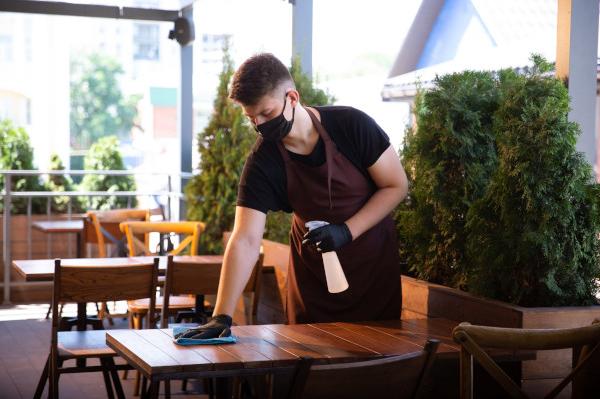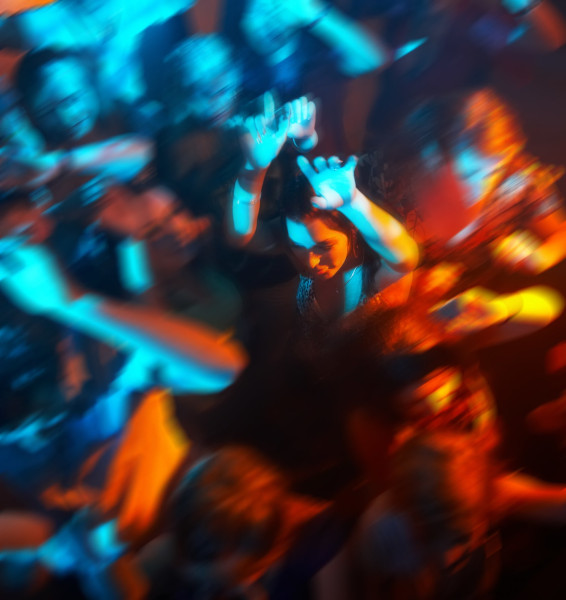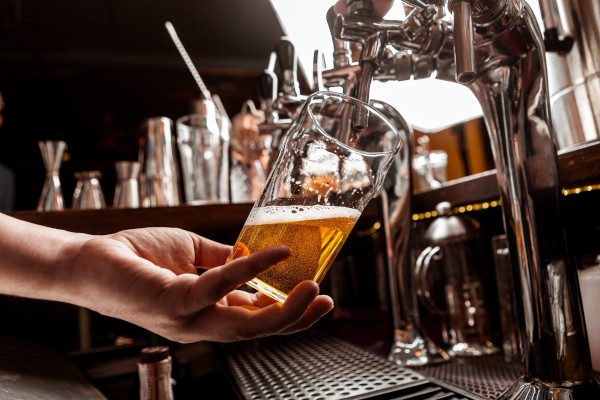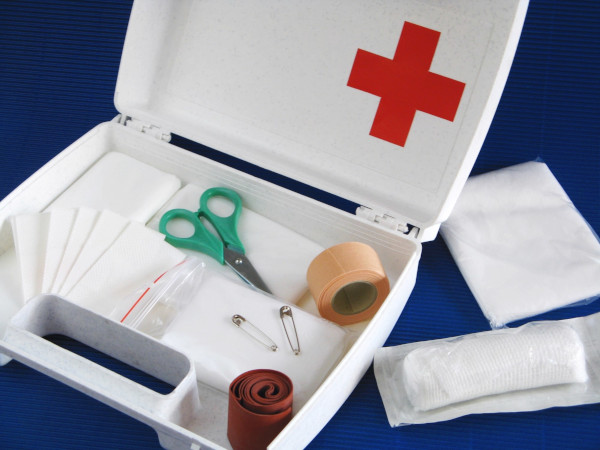Blog Post
Understanding the Necessity of A Health and Safety Course for Bars, Restaurants and Nightclubs

Keep Your Clients and Your Business Safe
With more and more people going out to enjoy themselves as COVID-19 regulations loosen up, managers and venue owners have to be doubly careful of making sure that their venues are safe and secure for their guests. It is vital for venue owners to do everything in their power to comply with health and safety regulations, as this will not only affect your business but also the lives and well-being of those who pass through your space. EMCARE offers a variety of health and safety course options for individuals who want to build their knowledge and skills so that they can be prepared for anything, particularly accidents and emergencies in the workplace. Read this article if you’d like to learn more about the health and safety course options that are useful for those who work in the service industry, bars, restaurants and or nightclubs.
Service Industry Requires Health and Safety Compliance
No matter where you are or what you’re doing, if you find yourself in a public venue that serves food and drinks then there is always a chance of danger. When it comes to the sale of food and alcohol, venue owners and staff become responsible for any incidents concerning drunkenness, allergies or any other problematic incidents that can arise. Owners and managers have to consider all of the potentially dangerous scenarios that could come about and prepare themselves and their staff to handle them calmly and effectively. Having at least two of your staff trained with one of the many EMCARE health and safety course options will allow for safer responses to dangerous situations.
When owners, managers and heads of staff are able to enforce a pre-determined action plan, then they can rest assured that their customers will stay feeling safe and cared for regardless of the emergency that breaks out. When owners fail to act in consideration of their clients’ health, then they risk being held liable and receiving legal charges. Failure to comply with health and safety regulations can, furthermore, result in a venue losing its trading and or liquor licenses. Hence, nightlife and recreational venues need to be careful about going the extra mile to ensure that they uphold all preventative measures.

Common Issues in Nightlife Venues:
-
Theft
Unfortunately, public venues like restaurants, nightclubs and bars are usually rife with petty theft. Criminals use these busy spaces to sneakily pick-pocket people while they aren’t looking, or when they let their guard down. Phones, wallets, handbags and coats are commonly taken and resold in marketplaces for money.
It is vital for venue owners and site managers to keep an eye out for suspicious characters who might be lurking around tables seemingly aimlessly. Staff should remind their customers to keep their belongings with them and watch out for their possessions. However, in the event that these possessions are looted, staff should be trained to help clients locate and recover stolen items to the best of their ability. Venues should install security cameras that help keep track of the evening’s events and record all suspicious activity.
-
Spiked drinks
It is not uncommon to hear horror stories regarding people being drugged, roofied or sedated as a result of spiked drinks. Menacing people often spike peoples’ drinks in the hopes of taking advantage of them or robbing them. This is why people always warn guests not to leave their drinks unattended in any event. Bartenders are also responsible for making sure that the person ordering the drink receives it, and that the drink is not simply passed on to any stranger who can tamper with it.
Regardless of how safe your bar is, and the number of bouncers and cameras you have installed throughout the space, drinks can be spiked in the blink of an eye. The long-term consequences of this can be extremely damaging for your clients and your venue’s reputation. Bartenders and staff members should have policies and procedures in place to ensure that any victims are adequately cared for, kept conscious and attended to using the principles taught in any EMCARE health and safety course.
-
Overdoses
Sometimes, especially in nightclubs, managers and owners will have to face the terrifying ordeal of a drug overdose. Overdoses can happen intentionally or unintentionally, and they are generally associated with illicit drug-taking. Exposure to these harmful chemicals and substances can cause poisoning and severe intoxication. Consequently, this could lead to someone requiring hospitalisation or even stomach pumping.
Confusion, comas, loss of consciousness, nausea, vomiting, high temperatures, high blood pressure and abdominal pain are all symptoms and side effects of a drug overdose. These scenarios can be fatal, so it is the staff’s responsibility to advise guests to seek medical care or administer first aid in serious cases. These will keep the patient stable until they are able to gain medical care.
-
Fights and assaults
If bartenders are not careful to limit the alcohol intake of customers who become aggressive or violent, then there is a chance that they will risk having to deal with a fight breaking out at a later stage. Certain customers may tend to become aggressive or confrontational under the influence. So, it is important for staff members to cut off overserved customers if they feel that they are becoming a threat to others.
If a fight does break out, and any serious physical damage is caused to the members involved, then it is useful for the staff or owner to have first aid on hand. Administering first aid requires qualifications that one can receive with an EMCARE health and safety course. This will be necessary to keep injuries to a minimum.
-
Drunk minors
Unfortunately, students and underage learners are often finding crafty ways to get into nightclubs or restaurants that sell liquor. Through the use of fake identification documents, licenses and tertiary education student cards, they often find ways to swindle bartenders and servers into providing them with alcohol. This, however, is incredibly dangerous and highly illegal.
If a minor is harmed while under the influence, staff will be held responsible and the venue could risk losing its trading license. Teenagers are also far more susceptible to alcohol-induced accidents because of their lower tolerance levels. So it’s important for staff members to be well-trained to deal with any accidents or injuries through a basic health and safety course (such as first aid). Other preventative measures include hiring efficient bouncers and making sure that your staff always inspects their clients' IDs before serving them.
-
Drunk driving
Drunk driving is an issue that plagues both minors and adults. Unfortunately, many people still fail to recognise the terrible consequences of driving under the influence. Statistics show that more than 1500 people were arrested in 2021 for drunk driving in South Africa during the festive season alone.
If staff members see an intoxicated person reaching for their car keys and preparing to drive somewhere, they should do their best to stop them. However, if this does not work, then the staff members should call the police and report them. Alternatively, arrangements can be made with a taxi company.
Common Issues in Restaurants:

-
Allergy attacks
Venues that serve food are required by law to let their customers know what allergens are present in the dishes that they serve. The Allergy Foundation of South Africa defines common allergens as egg, cow’s milk, mollusks, crustaceans, peanuts, cereals, tree nuts, soybeans, and seafood. However, there are many other allergies, lactose intolerances and gluten intolerances to be considered too. Not to mention religious requirements such as the vow to eat kosher or halal food only.
Restaurants have to take care to ensure that cross-contamination never happens and that foods are cooked and served carefully to the correct customers. If in some serious turn of events, a customer finds themselves having an allergy attack then the staff members should be prepared to help. For example, staff members might be asked to administer emergency support in the form of an EpiPen while they await paramedics. In this scenario, it is extremely beneficial for employees to have training in a health and safety course.
-
Choking hazards
Choking happens when a piece of food, or any foreign object, gets lodged in a person’s windpipe and consequently blocks their airway. Customers can easily endanger themselves by eating too fast, talking while they chew or simply breathing wrong while eating. If you’ve ever choked during a meal before, you’ll understand how scary it is, and how important it is to have someone nearby to help in a potentially fatal mishap.
If a choking incident is not handled efficiently and as quickly as possible, then it’s very possible that the victim can die or experience brain damage. This is due to the fact that choking blocks your windpipe and consequently cuts off oxygen to the brain. Staff members have to watch out for this silent killer, as a choking victim will be unable to ask for help. With the help of EMCARE’s health and safety course, staff members will be better prepared to recognise a client’s symptoms and respond with routine first aid measures.
-
Kitchen injuries
The heat and stress inside of a restaurant kitchen can be nightmarish for those who aren’t accustomed to the fast pace of the service industry and the culinary arts. Even for those with years of experience, accidents are always still possible. If a chef chops off their thumb, or a dishwasher slips and hits their head, then surrounding staff members will have to deal with the fallout as fast as possible.
Kitchens are incredibly dangerous because there are glasses, cutlery, sharp blades, ice and fire everywhere. Furthermore, stress levels are high and anxiety attacks or even panic attacks often exacerbate accidents. For this reason, there should always, without fail, be a trained medical aid person available to minimise damages and keep injuries under control until further help can be offered. Any restaurant kitchen or bar should oblige their employees to train and study through an EMCARE health and safety course so that they are prepared for the unthinkable.
-
Biological hazards
Examples of biological food hazards include bacteria, parasites, yeasts, moulds, viruses or pathogens and toxins. If a restaurant supplier unconsciously provides their retailer or vendor with hazardous food, then it is highly likely that an outbreak of sickness and food poisoning will spread among clients. Some truly dangerous examples of biological hazards include salmonella, listeriosis and even e-coli.
While it is up to the health and safety officers present in the business to be careful when purchasing and distributing food products, it is also important for staff members to have a basic understanding of how to mitigate these scenarios where necessary. If the symptoms of biological hazards kick in immediately, then they will have to jump in to alert paramedics and care for affected clients in the meantime. Dealing with these kinds of stressful scenarios requires insight into health and safety measures.
Invest in a Health and Safety Course
EMCARE is a trusted health and safety training company that provides people with the skills necessary to save lives and combat danger. They offer a wide range of first aid courses, emergency medical courses, firefighting courses and occupational health and safety courses. If you would like to participate in a health and safety course with EMCARE, you can consider the following options, amongst many others:
- General Health and Safety Course (OHS7)
- Health and Safety Representative Course (OHS3)
- Health and Safety Supervisors Course (OHS4)
- Occupation Health and Safety Act Course (OHS9)
- Occupational Health and Safety Workshop (OHS10)

GET IN TOUCH
There are a few ways to reach us below. Please feel free to contact us via phone, email or you can send us a message via the form provided and we will get back to you.




















